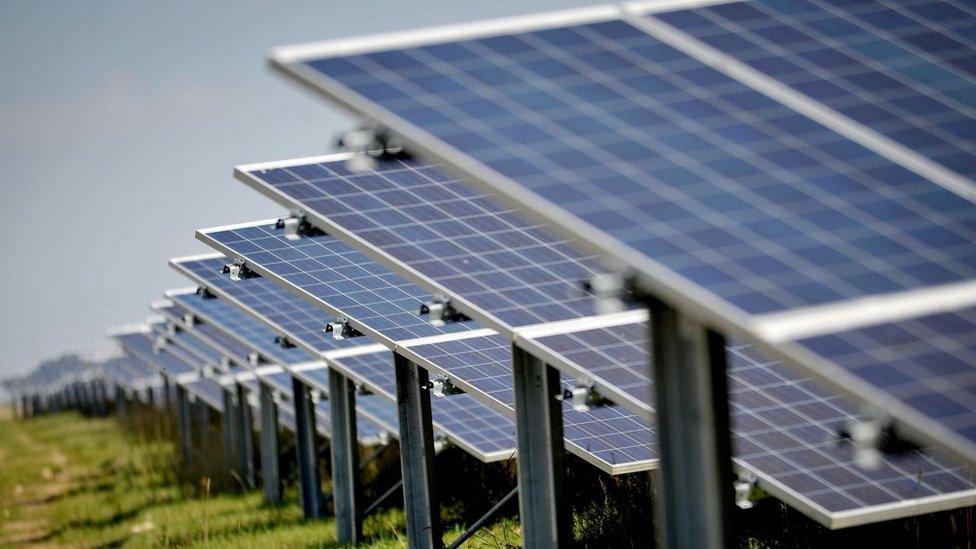Sizewell C nuclear power plant backed by government
- Published
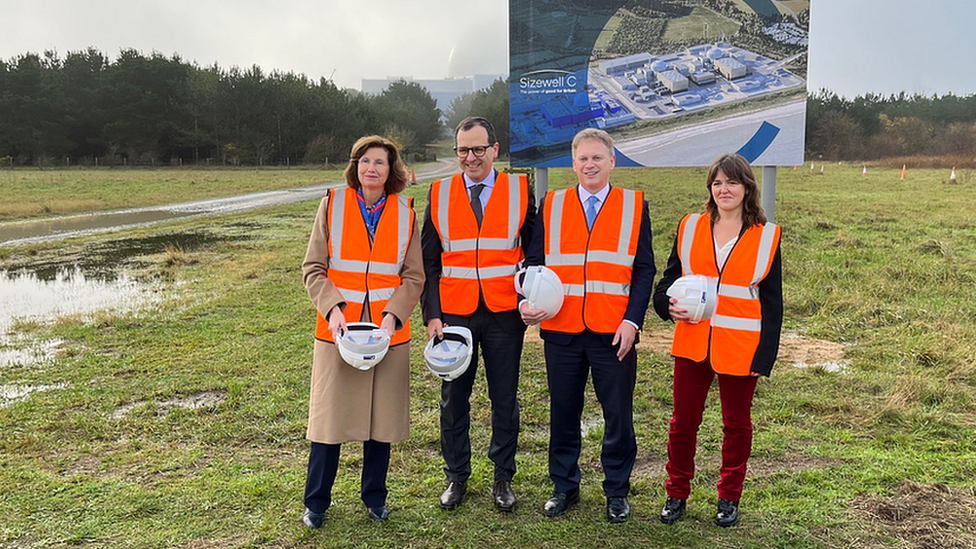
Grant Shapps visited the Suffolk coast to mark the signing of contracts for government investment in Sizewell C
A new £20bn nuclear power plant would help Britain move towards "greater energy independence", the business secretary said as he backed the plans.
Grant Shapps visited the Suffolk coast to mark the signing of contracts with French energy firm EDF for £700m of government investment in Sizewell C.
He said ministers were also committed to developing other new nuclear projects and the Energy Security Bill.
Critics said there was a "huge amount" of money still to find for the project.
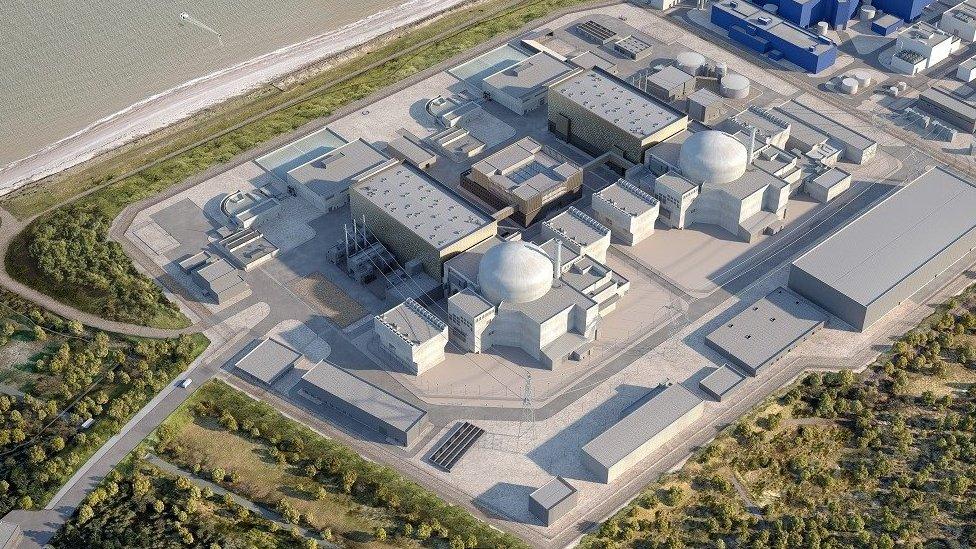
The planned plant is expected to cost about £20bn
The two-reactor plant, claimed to be able to generate 7% of the UK's electricity needs, was approved by the government in July when Boris Johnson was prime minister.
It had been rumoured to be under review, which Downing Street quashed, and then in the Autumn Statement the chancellor pledged the government's £700m investment.
Mr Shapps, the business and energy secretary, said with global gas prices at "record highs", caused by Russia's invasion of Ukraine, the nation needed "British energy for British homes".
"Today's historic deal giving government backing to Sizewell C's development is crucial to this, moving us towards greater energy independence and away from the risks that a reliance on volatile global energy markets for our supply comes with," he said.
"This is at the heart of a package of measures that - together with the new Great British Nuclear and powers of the Energy Security Bill, external - will ensure secure supply for now and for generations to come."
Shadow climate change secretary Ed Miliband said Labour supported the announcement on Sizewell C, new nuclear plants and the return of the "delayed energy bill which should have never been paused".
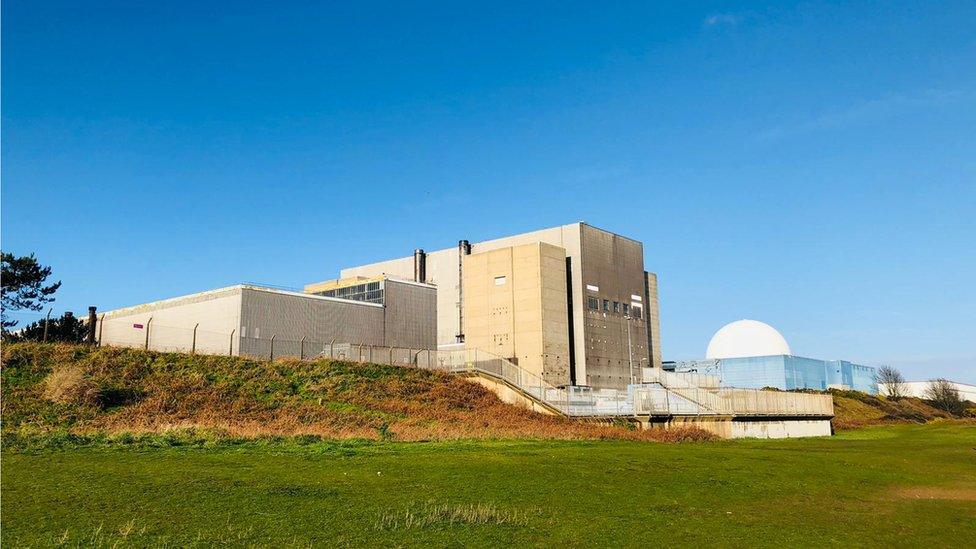
The site for Sizewell C, near existing nuclear buildings on the Suffolk coast
Under the Sizewell deal, the government would become a 50% shareholder in the project's development with EDF.
Mr Shapps confirmed the deal meant the government had bought out China General Nuclear and that the state-owned Chinese nuclear power company was "no longer involved" in the plans.
The government said its investment was its first direct input into a new nuclear power project since Sizewell B, which was approved in 1987 and was the last to be built in the UK.
EDF's chief executive, Simone Rossi, said Sizewell C would "deliver another big boost to jobs and skills in the nuclear industry and provide huge new opportunities for communities in Suffolk".
Campaign group Stop Sizewell C said the project could "neither lower energy bills nor give the UK energy independence".
"Despite the government's paltry £700m, there is still a huge amount of money to find and no-one is prepared to come clean about what the ultimate cost will be," a spokesperson said.
"Sizewell C may have to rely on overseas investors who would pocket UK households' hard-earned cash. With a French developer, overseas owners and foreign uranium fuel, the claim of energy 'freedom' looks pretty hollow."
Together Against Sizewell C, another campaign group against the project, branded the scheme a "financial sink hole".
The group has applied for a judicial review challenging the plant's approval, which it said now held "even greater importance".

Find BBC News: East of England on Facebook, external, Instagram, external and Twitter, external. If you have a story suggestion email eastofenglandnews@bbc.co.uk, external
Related topics
- Published4 November 2022

- Published15 June 2022

- Published2 November 2023
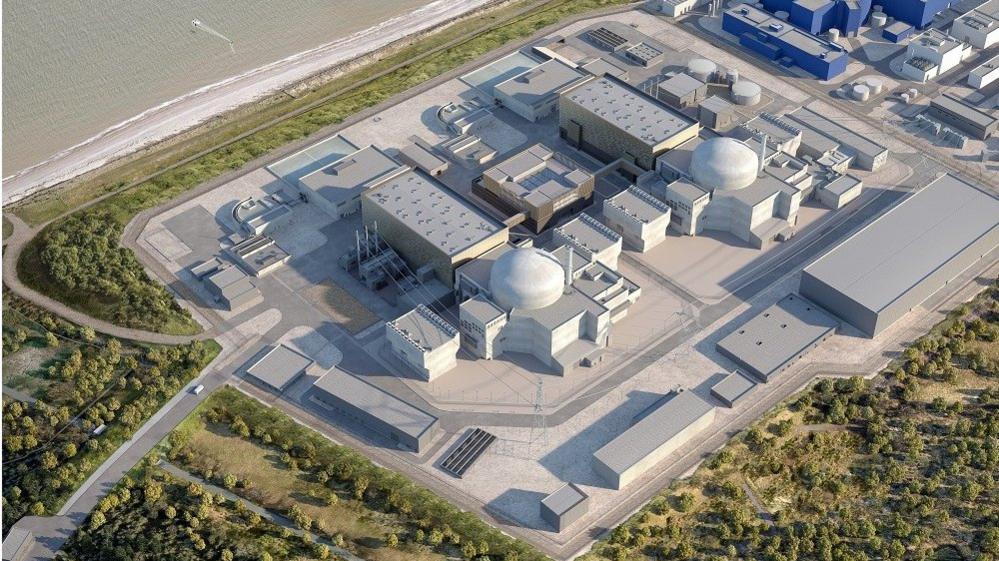
- Published29 October 2022
